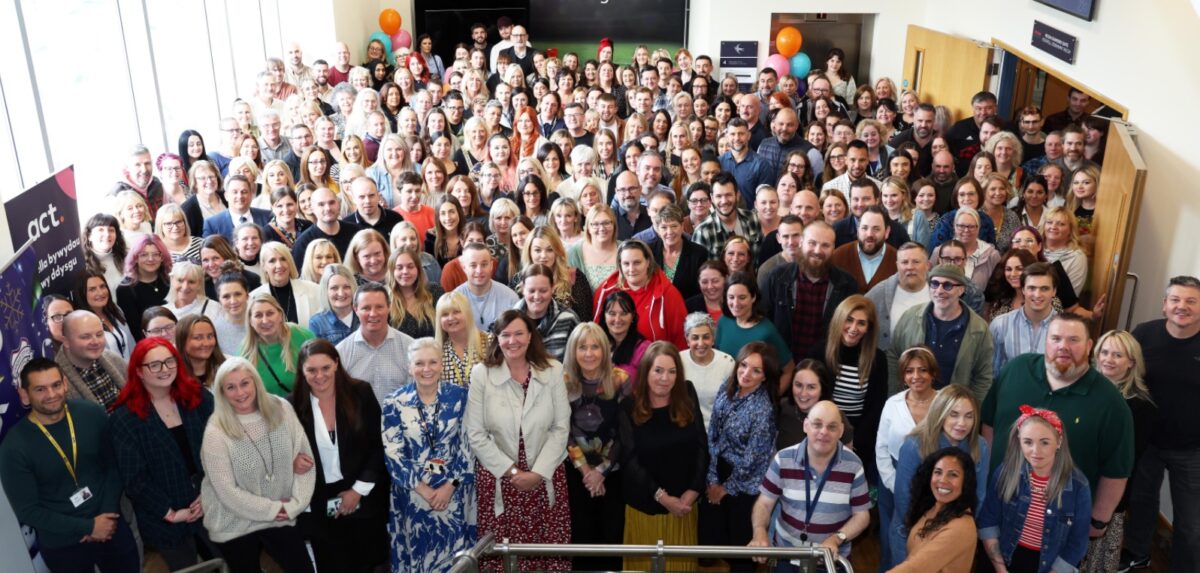Maths and English are a requirement – why not IT? Ensuring all school leavers are IT savvy
Fleur Sexton, Deputy Lieutenant West Midlands and Managing Director of PET-Xi – one of the most hard-hitting and dynamic training providers in the UK with a reputation for success with the hardest to reach – shares her thoughts on addressing digital division and the need for Level 2 IT skills for all school leavers
The future is digital – so why are so many young people leaving school without basic IT skills? They zone into their phones to keep up with whatever or whoever is trending on social media, so we may assume that they are tech savvy, however some students are leaving education without even basic word processing skills – unable to create even a simple CV. In a recent worldwide survey: 40% of UK 16-24 year olds said the IT education they received did not equip them with the necessary skills to pursue their careers; 52% received only basic computing skills training; and alarmingly, 10% did not received any technology or digital skills education.
Are we equipping them for their future career opportunities or closing down their options before they’ve even begun?
The latest Government statistics speak for themselves – just over a half – only 58.0% of students who studied below Level 2 continued on to education, training or employment; compared to 72.5% of students who studied mainly at Level 2; and 85.5% of students who studied at Level 3 or above.
Despite job vacancies hitting an all-time high, the number of economically inactive (not looking for work) NEET (not in education, employment or training) young people continues to rise. We are currently losing out on untapped potential, and these young people are at risk of missing out on job opportunities which will limit their earning capacity and impact their families and communities.
Level 2 IT qualifications develop expertise and competence to create, edit, save and print documents using word processing software; and produce spreadsheets to store, manipulate and analyse data, and create and present information. Ofqual’s ongoing consultation on regulating Level 1 and Level 2 qualifications will help to guarantee the courses available are high quality and value for money.
At the same time as mastering basic IT skills and obtaining a qualification, students can also gain practical skills for life – how to write a successful CV and covering letter, or keep track of personal finances using a spreadsheet to budget.
Alongside qualifications, work experience provides an insight into the workplace, helps highlight employability skills, increases confidence and communication skills and optimises a candidates CV. We need to ensure that young people are aware of the ever increasing and diverse roles within the tech sector. The job market is changing, and career options within all sectors of the tech industry are continually evolving. Up to the minute careers advice is indispensable.
Technological advances in industry and everyday life continue to develop at a rapid rate. Last year the UK tech industry was valued at £869bn ($1tn) – a landmark milestone only previously reached by the US and China – and more than double that of Germany and five times larger than France and Sweden. The ‘fourth industrial revolution’ is here and we need to harness it and ensure that the Levelling Up agenda remains current in both its vision and in funding terms.
We need to be proactive and provide all our young people with the skills needed to be successful in today’s world. IT skills need to be viewed through the same lens as mathematics and English and we should be striving for those leaving education to have at least Level 2 qualifications in all three subjects. In order to Level Up and create a fair and equal society, we must equip our young people for success, and provide them with the foundations needed to build positive futures.












Responses